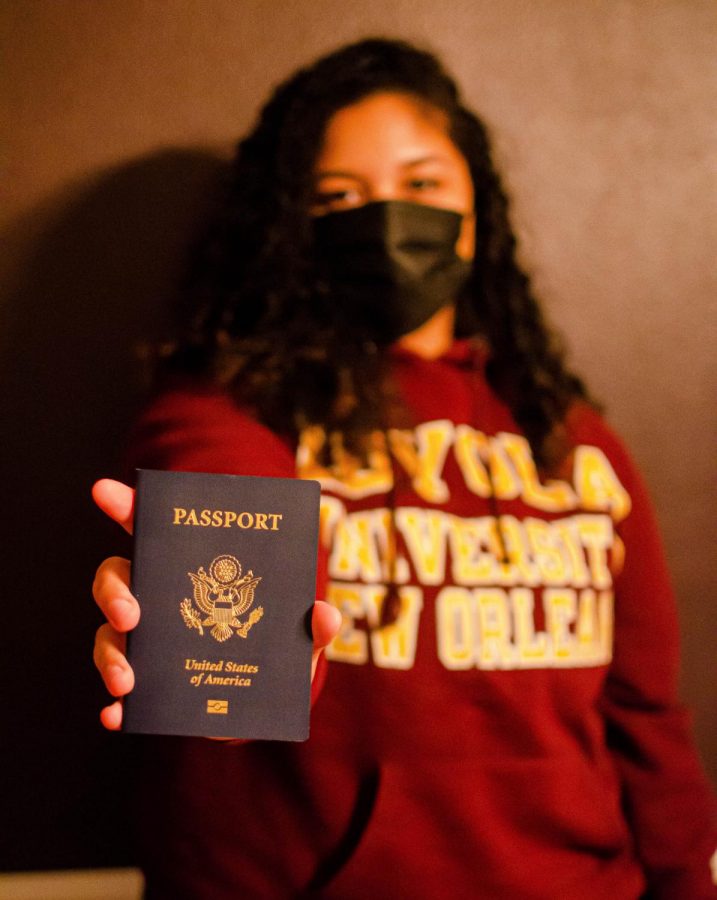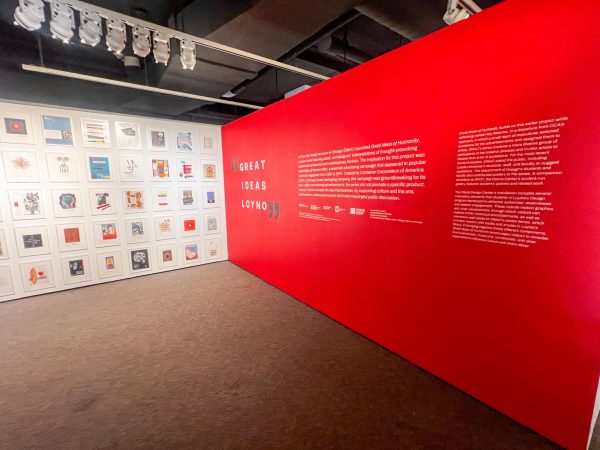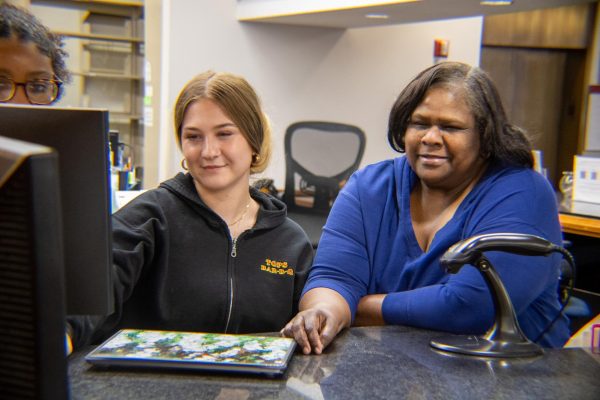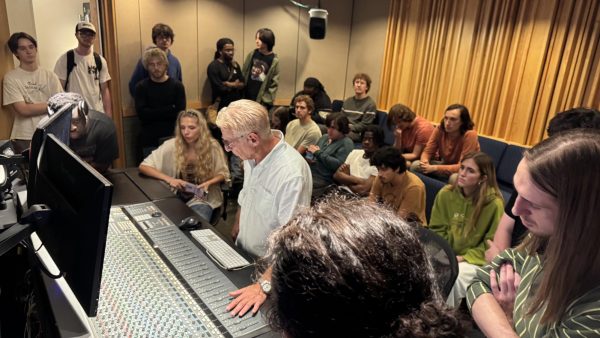Students prepare to study abroad during COVID-19
(WEB VERSION) Asia Julia Hentkowski packs for her upcoming trip to England. Asia is just one of the many Loyola students that will be studying abroad this semester.
The study abroad program at Loyola University is operational for the fall 2021 term despite the rise of new COVID-19 variants.
Loyola made the decision to suspend all summer 2021 study abroad programs as a precautionary measure against the worsening outbreak of the COVID-19 pandemic. However, now that Loyola has fully resumed in-person operations, the university has decided to lift the suspension of the program and resume normal operations to its greatest ability.
Although the study abroad program is scheduled to run as planned, students that are studying abroad during the fall semester have been strongly advised to make backup plans for the term by enrolling in fall courses and considering backup housing options, according to Loyola’s website.
In order to qualify to study abroad this semester, Loyola students must check off certain criteria such as “getting vaccinated, quarantining before they go and when they arrive, creating a plan for what to do if they get sick, as well as planning for a safe re-entry into the United States once their program comes to a close,” according to Mariette Thomas, director of the Center for International Education at Loyola.
This semester, in spite of the uncertainty of the virus, a small number of Loyola students are as determined as ever to actively engage with the world around them through study abroad programs.
Although the program is back up and running some students have still had to adjust or even postpone their plans for travel. One such student, political science senior Asia Julia Hentkowski was forced to change her plans to study abroad in Japan last minute to reflect the newest wave of travel guidelines
“I have never been out of the country before. I just knew that I wanted to immerse myself in a different culture and that is originally why I picked Japan because it is such a drastically different culture,” said Hentkowski.
However, over the summer Japan changed its travel advisory rating to a level three meaning “reconsider travel,” according to the Centers for Disease Control and Prevention’s current travel advisory.
Although Hentkowski could no longer study abroad in Japan, she was not dissuaded from her desire to travel and found an alternative program in the city of Norwich in England.
“It was a little bit disappointing at first hearing the stuff about Tokyo, but I kind of expected it because I have been tracking it all year,” said Hentkowski. “On the other side of it, I am not too disappointed because I still get to go somewhere. In the end, you have to bring it back to reality that we are living in unprecedented times.”
Unlike Hentowski, some students have been able to move forward with their original study abroad plans. Alexandra Zengel, criminology and justice and philosophy pre-law junior, will be studying abroad in France starting in late August. As the daughter of a first-generation American immigrant, Zengel understands the value of travel and cultural immersion.
“My mom came to the United States in college, and she spent her life traveling the world, so I have always grown-up hearing about how important travel and experiencing new cultures is,” said Zengel.
Those who have decided to continue with their plans to study abroad amid the pandemic are aware of the added risk, according to Thomas, but it is a risk worth taking.
“Things like COVID-19 have shown how interconnected the world is and so I think we need global-thinkers now, in some ways, more than ever,” said Thomas. “These big problems that are affecting the world right now require global solution.”
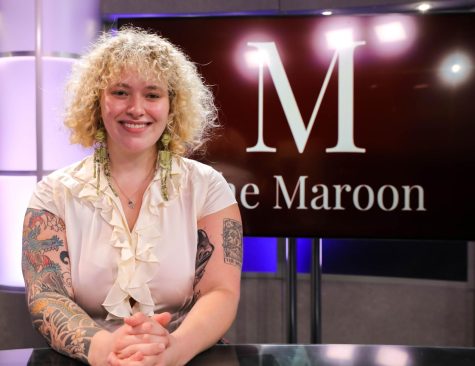
Gabrielle Korein is a Mass Communication senior who is passionate about writing, photography, and videography. Gabrielle has spent over 7 years as a freelance...


